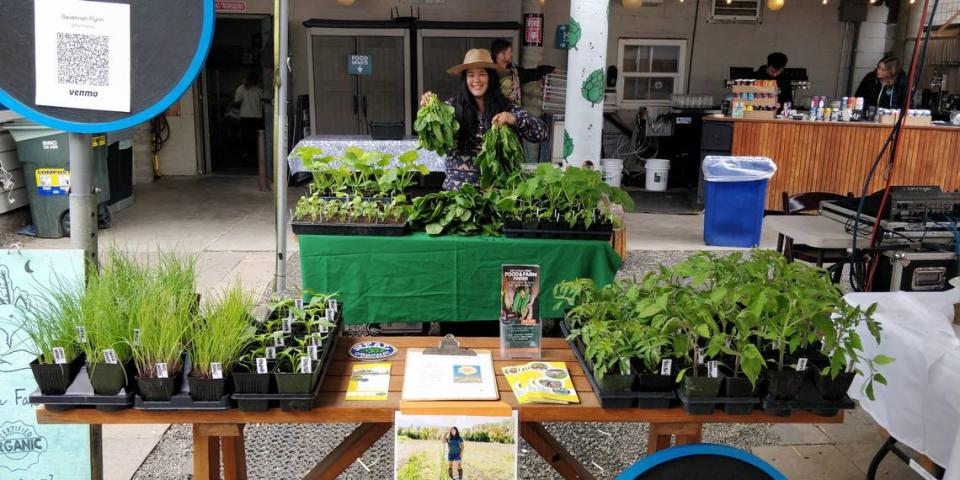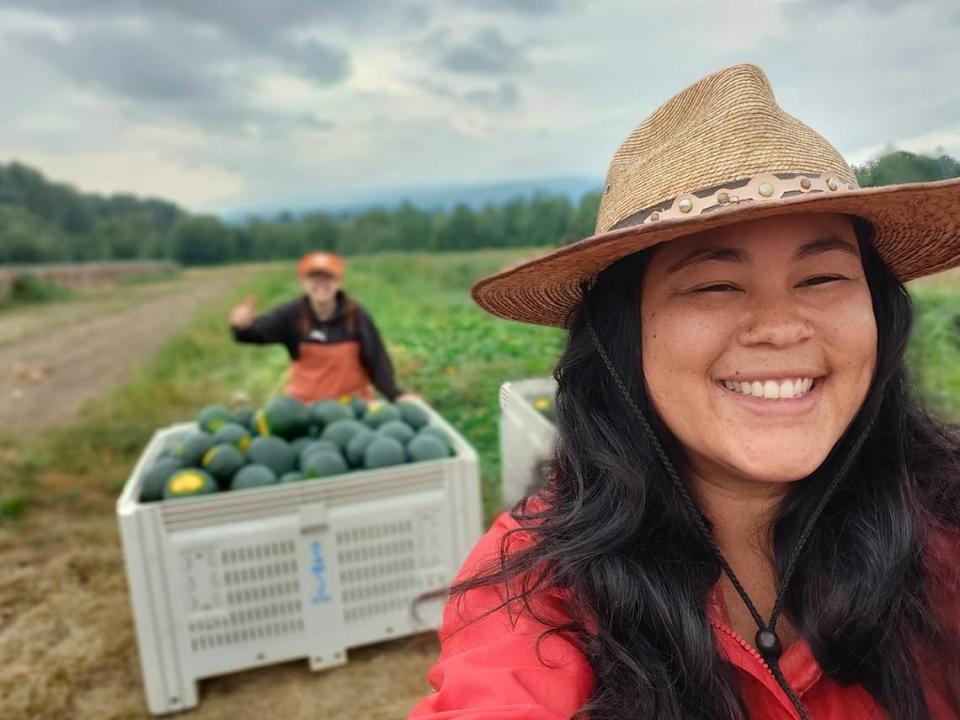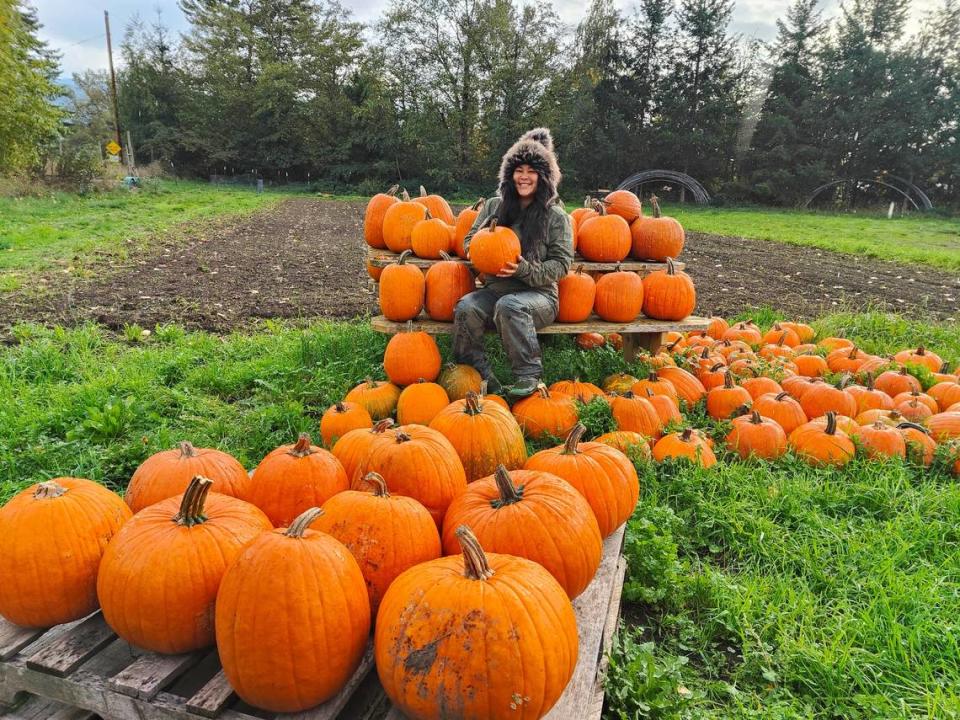Whatcom County farm program focused on bridging gaps in food access plans to shut down
A local program designed to support and subsidize beginner Whatcom County farmers while helping to bridge gaps in food access and availability is shuttering.
The Incubator Farm Program is part of Cloud Mountain Farm Center, operating under Sustainable Connections, a local nonprofit with a mission of building community, strengthening food systems, creating climate solutions and expanding access to housing.
The program is operated on about 20 acres of farmland along Lawrence Road in Everson, which was purchased for $400,000 in 2012 by the, then independent, Cloud Mountain Farm Center using a grant provided by the Whatcom Community Foundation.
It allows beginner farmers to lease land and equipment at an affordable rate and it connects those producers to markets and community groups.
Current staffing and funding for Cloud Mountain Farm Center aren’t sufficient to provide the necessary support to maintain the Incubator Farm Program long-term, according to Sustainable Connections Executive Director Derek Long.
“The fundraising environment is competitive, as is the job market,” Long wrote in a statement to The Bellingham Herald. “Finding both at adequate levels to continue to support the Lawrence Rd. farm feels out of reach for the coming years.”

Sustainable Connections notified the four small farm businesses operating on the Lawrence Road property in October that the program would be shutting down. All four operators were offered the opportunity to continue to farm there for the 2024 season. Three accepted that opportunity, according to Long.
“It is a difficult choice to change programming that people rely on and that staff have invested a lot of time, heart and work into,” Long told The Herald.
Savannah Flynn leases land and equipment through the Incubator Farm Program to run Flynn Farms, her 2-acre certified organic farm that supplies local food banks, health care organizations, restaurants, grocers, markets and farm stands.
This is Flynn’s fifth year operating her farm through the program. As an Asian American and Pacific Islander woman, veteran and first-generation farmer, she said joining the program was a good opportunity for her to operate her farm business without the added startup barriers of purchasing land and equipment.
“It was a big shock that it was going away,” Flynn said.
Farmers pay $500 per acre for their first year in the Incubator Farm Program, $550 per acre for their second year, and $600 per acre for their third, fourth and fifth years, according to Flynn. They also pay a small hourly fee to rent the tractor.

Flynn said the total cost to lease the land and equipment last year was $3,300. Now that the program is shuttering, she said she feels stressed about trying to find new land. She said she worries that the program’s closure will limit opportunities for new and diverse farmers to get into the local agriculture industry, especially for those who may not have the capital to own land or equipment.
“I feel like I should have gotten more than a year’s notice to move a whole farm business,” Flynn said. “It’s going to be really difficult to pick up everything at the end of the season, go to a new site and plant.”
Flynn also said she is worried the end of this program could have significant negative impacts on food access throughout Whatcom County.
“It directly affects food security,” Flynn said. “We would lose thousands and thousands of pounds of food. We produce a lot of food for this county.”
Flynn Farms is one of three farms in the Incubator Farm Program that contracts directly with Foothills Food Bank, which serves all of Mt. Baker School District — over 600 square miles. The food bank sees about 325 families every week.
Foothills Food Bank Board President Noelle Beecroft told The Herald she hopes all three farms find new land and continue to grow food.
“Supporting small farms is crucial to the well-being of a community,” Beecroft said in a statement to The Herald. “These people are breaking their backs to provide food for us to eat while tending to the land. It is a huge responsibility and gift to have and we are just so grateful for those who choose to responsibly grow food for our community!”

Flynn said it is her goal to start a fundraiser for a new Incubator Farm Program and find alternate farmland that can accommodate it. She was quoted $43,000 to purchase all of the equipment from the existing program.
“If we didn’t have (the Incubator Farm Program), that’s four entire relatively popular local farm businesses that go away,” Flynn said.
Long told The Herald that Sustainable Connections plans to assist potential future partners that may be able to offer a longer-term home for the program after 2025.
Sustainable Connections intends to sell the farmland on Lawrence Road to “strong farm stewards who will continue to use the land productively as well as organically, and to benefit the needs of the local food system including the possibility of supporting newer, underserved and marginalized farmers,” Long wrote.
Long told The Herald he isn’t sure how much the property will be listed for and expects the sale to take a couple of years as Sustainable Connections searches for an appropriate buyer.
Proceeds from the sale will be used to help fund the other farmer support activities Sustainable Connections provides, including processing, aggregation and distribution, agriculture workforce development, the organization’s organic fruit program, and the organization’s nursery, according to Long.

